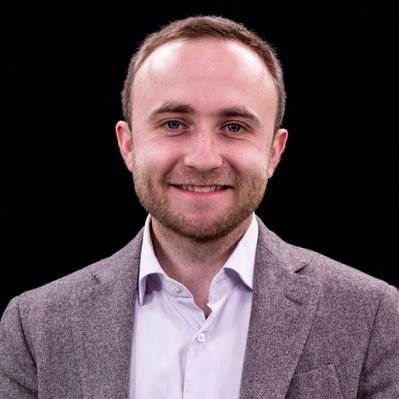Rome is gearing up for the Jubilee of Teenagers scheduled for the end of April, culminating in the canonization of Carlo Acutis, the first millennial saint. Thousands of young pilgrims will flood the city, and Fr. Alfredo Tedesco, the Diocese of Rome’s Youth Pastoral Director with his team is making sure they feel at home.
Parishes are mobilizing, volunteers are stepping up, and Roman families are opening their homes to host them. But how can the Church truly connect with today’s youth? Hannah Brockhaus, EWTN’s Senior Vatican Correspondent, sat down with Fr. Tedesco to find out.
Father Alfredo Tedesco. What is the Diocese of Rome doing for the “Jubilee of teenagers” in April?
Of course, the Diocese of Rome is the Pope’s own diocese, which makes it the host diocese for the Jubilee of Youth. The event will take place from April 25 to April 27, culminating in the canonization of Blessed Carlo Acutis. In preparation, the Diocese of Rome is embracing the ministry of hospitality. Our parish communities are getting organized—not just through accommodation facilities and lodging, but also through the people themselves, the communities that are coming together to offer volunteer services and welcome young pilgrims into our parishes.
You are the person in charge of the office for Youth Ministry in the Diocese of Rome. What does that entail exactly?
In the Diocese of Rome, we are committed to spreading the Gospel in a way that speaks to the needs of this age group, working through our network of parish communities. But we also keep in mind those young people we aren’t able to reach—those who, for their own reasons, don’t come to church. That’s why we’re also exploring new ways to bring pastoral life to the youth of our diocese, finding creative ways to engage and accompany them on their faith journey
What is the spiritual reality right now for Italian teens and young people?
There are so many misconceptions about young people. For example, we often assume that if they don’t go to church, they must not be interested in spirituality, faith, or Christianity—or even in religion at all. But from what we’ve seen, I can say with confidence that they do have a deep longing. They have questions—many questions. A real, sincere, and profound desire for God. It’s just that they don’t express it in the way we, as adults, are used to.
Are there any particular challenges in this moment to reaching young people and to encouraging them to participate greater in their faith, to answer this desire?
The Office of Youth Ministry—and the initiatives we’ve launched—began right in the middle of the Covid pandemic. I started this role on September 1, 2020, and I couldn’t ignore the impact of the digital world. That moment became an opportunity, as our offices know well, to experiment in this field. But with one key approach: inviting young people to be apostles to their peers in the digital space. The Pope calls them ‘digital missionaries’—and it’s true. The digital world is a real mission field, almost like a new continent, where we must learn a new language—the language of that space. And the main actors, or better yet, co-responsible partners in this mission, are the young people themselves.
In fact, I had another question about this protagonism of youth as Pope Francis calls it. And so you gave me one example, but I don't know if you have other examples of how you are letting youth also lead and not only be the objects, but to be the subjects of the story too.
The Diocese of Rome takes a very practical approach to this. In our youth ministry team, I wanted to include both adults—because their presence is important—but also younger voices, essentially ‘young adults.’ This includes families, consecrated men and women, and people from different backgrounds.
But when it comes to decision-making, I always want to hear their perspective. St. Benedict said, ‘When in doubt, listen to the young.’ I’ve tried to make that a guiding principle for myself—not just consulting young people after decisions are made, but involving them in the process itself. I always ask for their input, and often, their voice is the last word—because where we adults sometimes struggle to understand, their fresh perspective has consistently led me to make the right choice.
Right now we're in the Jubilee of Hope. So, I wanted to ask what gives you hope for the future of the church and for the future of young people right now?
To me, young people are hope. Seeing them, preparing with them, working alongside them, and simply being with them fills me with joy—hope, and above all, a deep reason to look to the future with great, great faith.
Adapted by Jacob Stein
SIGN UP FOR OUR NEWSLETTER HERE

Alexey Gotovskiy serves as a journalist, producer, and manager at the EWTN Vatican Bureau. Born in the former Soviet Union, he holds a graduate degree in Church Communications from the Pontifical University of the Holy Cross and has produced over 200 episodes of EWTN "Vaticano," covering the life of the Universal Church.








